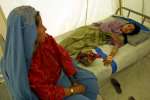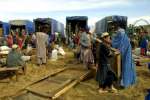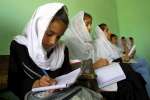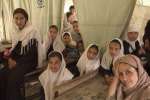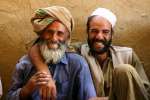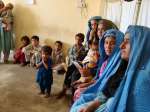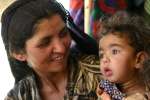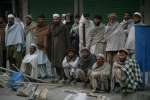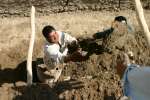UNHCR winter aid for over 30,000 vulnerable Afghan families
Crisis in Afghanistan, 29 December 2008
UNHCR Kabul Press Information, 29 December 2008
KABUL, Afghanistan, 29 December 2008 – As temperatures drop across Afghanistan, UNHCR and its partners have started delivering winter supplies to the most desperate Afghan returnees and internally displaced families to help them get through winter.
As part of a coordinated response with the Afghan authorities and other aid agencies to the harsh winter, the UN refugee agency plans to assist a total of 31,897 Afghan families – numbering some 200,000 individuals – with relief items such as tents, blankets, plastic sheets, hurricane lanterns and jerry cans from the agency's stockpiles throughout the country.
UNHCR's winter assistance this year also includes warm clothing and shoes. The beneficiaries are a mix of recent returnees, internally displaced people (IDPs) and others at risk in the cold weather. It is hoped that inter-agency winterization assistance can be reoriented from emergency response to emergency prevention for vulnerable communities.
Over 147,000 blankets, more than 80,000 plastic sheets, 32,000 jerry cans, 46,000 items of warm clothing including 18,000 pairs of shoes and 30,000 pairs of socks have been purchased and sent to UNHCR's regional offices for countrywide distribution.
In the Eastern region where the majority (61%) of this year's returnees have gone, around 11,000 returnee families will receive winterization assistance. The priority for the distribution of winter supplies is given to Afghan returnees who are currently living in five spontaneous settlements in Nangarhar and Laghman. Already more than 3,700 families out of more than 4,400 eligible families in those settlements have received the assistance. The distribution began last week and so far more than 5,000 families have benefited in the eastern region.
In the Western region, the overall plan is to help some 7,000 families including some 800 families in Nimroz and a total of 6,200 families in the western region i.e. Herat, Badghis, Ghor and Farah. UNHCR has already pre-positioned non-food items for 1,000 families in Badghis and 1,000 families in Ghor provinces where access due to heavy snow remains difficult.
In the South, of the planned 5,000 families to be provided with winter assistance, so far the refugee agency has pre-positioned non-food items to be distributed to 1,000 families in Helmand and 500 families in Zabul. Arrangements are underway to pre-position assistance to 1,256 families in Zhari Dasht and 500 families in Uruzgan and these will be notified within the coming weeks. It is anticipated that all distributions, barring unforeseen contingencies, will be finalised by 31 January.
In the South-Eastern region, 3,000 mainly returnee families living in Paktya and Khost will receive winterization packages of non-food items as well as warm clothes.
In the Central region, the overall plan is to assist 4,450 families. UNHCR has already completed the distribution of winter assistance in the provinces of Parwan, Kapisa and Panjshir while the distribution is ongoing in Logar, Wardak, Ghazni and Kabul. The beneficiaries include recent returnees from camps in Pakistan, returnees living in government land allocation sites, and IDPs.
This year, many more families are receiving winterization assistance as a result of UNHCR's awareness raising and advocacy among agencies and private sectors. UNHCR is urging donors to direct their assistance to such outlying communities as IDPs in Ghazni and new returnees in Logar and Wardak, some of whom are still landless and homeless.
The refugee agency's own assistance is focused on less-visible and accessible rural areas, where conditions are worse for returnees and IDPs in isolated communities. Given the large number of returns to the cities, UNHCR together with the International Organisation for Migration (IOM) have also agreed to fill in the heating gaps for winter assistance in urban centres.
In the Central Highlands, one of the regions most affected by winter, UNHCR will be delivering relief items to over 500 families both in Bamiyan and through the Department of Refugees and Repatriation (DoRR) in Daikundi province for further distribution.
In the North and North-Eastern region, UNHCR has started providing standard assistance package of blankets and plastic sheets to over 4,600 beneficiaries. Distribution has been completed in Balkh, Faryab, Samangan, Jawzjan, Sar-i-Pul and Baghlan provinces.
Similar distributions are underway in Kunduz and Takhar provinces and they are expected to be completed by the first week of January.











